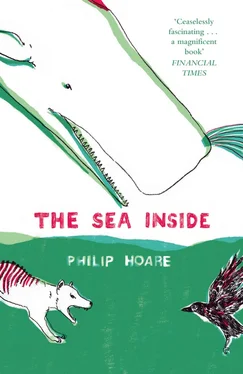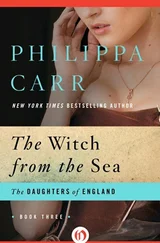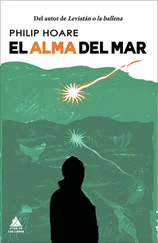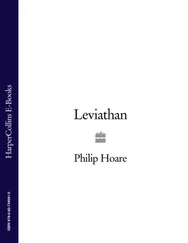Yet Tennyson’s romantic sentiments were not quite as they seemed. His words expressed the overturning of old certainties in the age of Darwin’s discoveries:
Tho’ Nature, red in tooth and claw
With ravine, shriek’d against his creed.
The way that nature was seen was being overturned. In 1844, Robert Chambers’ Vestiges of the Natural History of Creation was published anonymously, and sensationally, addressing the idea of the transmutation of species. It was avidly received, not least by Tennyson, who acknowledged that it explored theories he himself had addressed in his work, and by Prince Albert, who read it aloud to the Queen. As Tennyson was drifting into his Arthurian Idylls , Darwin was writing On the Origin of Species in a hotel on the same island. It was as if the world were being reordered here, at England’s outer limits.
‘The far future has been my world always,’ Tennyson said. He retreated to Farringford, his house in Freshwater, and retitled his portrait by Julia Margaret Cameron ‘the dirty monk’. But he soon realised that nature could not protect him; that despite the woods around his house and the buttresses of the sea and its raven-haunted ravines, he was also surrounded by his words, as ensnared as a wheatear, unable to escape the place he had assumed in the imperial pantheon. By 1869 the sightseers had become too much, and Tennyson left Farringford for Surrey, where, twenty years later, he would receive the news that his son had died at sea on his way back from India.

By then his former neighbour had long since de-camped. After years persuading ungrateful great men to pose for the plate-glass negatives which would indeed immortalise them, Julia and her ailing husband sailed from Southampton on the P&O ship Mirzapore in the autumn of 1875, bound for Ceylon. With them they took their coffins, packed with their possessions, knowing they would never return.
On the island’s western coast at Kalutura they set up home, covering their bungalow’s walls ‘with magnificent photographs’ as a visitor, Marianne North, recorded; ‘others were tumbling about the tables, chairs, and floors with quantities of damp books, all untidy and picturesque; the lady herself with a lace veil on her head and flowing draperies. Her oddities were most refreshing.’ Julia photographed local people in the same style in which she had posed the great and good of British society. But her new island idyll – as if she had finally accomplished the feat of towing the Isle of Freshwater to the Indian Ocean – was only fleeting. Four years later, having moved to a house high in the tea-growing hills of Nurawa Eliya, then known as Little England, Julia died, looking up at the stars, uttering her last word, ‘Beautiful.’
As I resume my climb, I’m forced to stop every now and again – not because I’m running out of breath, but because the view itself is breathtaking. Behind me is the landscape I have known all my life, levered up and flattened at the same time; a three-dimensional map of my hinterland, from Bournemouth’s beaches to Portsmouth’s towers, signalling the south-eastern sprawl towards London.
Everything falls away, as if seen from a lurching helicopter. At the feet of the cliff, the sea is turned cloudy, as though scattered with bath salts. Beyond, its open surface is pooled with shifting shafts of sunlight and mercurial upwellings. It seems to move under itself, inexorably, a great slow mass beneath a rippling skin. The quiet is unnerving. You’d think such a vast vista would evoke an awful noise, echoing with what Tennyson called ‘the moanings of the homeless sea’. This is as far as I can go. Any further and I’d have to take to the water. I feel a sudden surge of inexplicable homesickness, perhaps because I can see my home, near and far away.
I think the silence is getting to me.
William Davenport Adams bellows – it’s the former schoolmaster in him. ‘Oh, there is such a glorious prospect from this bold headland!’ he shouts, making himself heard over the long-departed wind, ‘a vast sweep of the Channel blends strangely in the distance with the deep-blue sky, and when you turn, lo, beneath you lies the silent peninsula-plain, with its villages, and wooded knolls, and sequestered farm-houses, and sparkling streams.’
Конец ознакомительного фрагмента.
Текст предоставлен ООО «ЛитРес».
Прочитайте эту книгу целиком, купив полную легальную версию на ЛитРес.
Безопасно оплатить книгу можно банковской картой Visa, MasterCard, Maestro, со счета мобильного телефона, с платежного терминала, в салоне МТС или Связной, через PayPal, WebMoney, Яндекс.Деньги, QIWI Кошелек, бонусными картами или другим удобным Вам способом.













